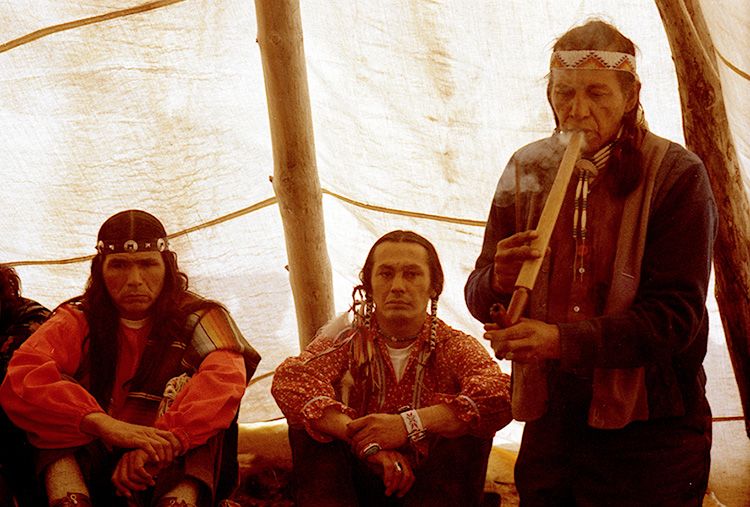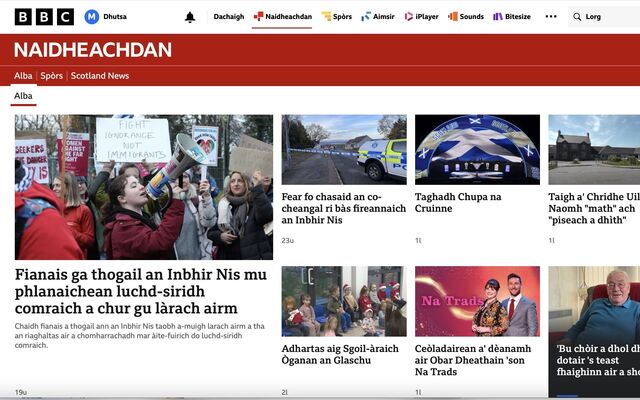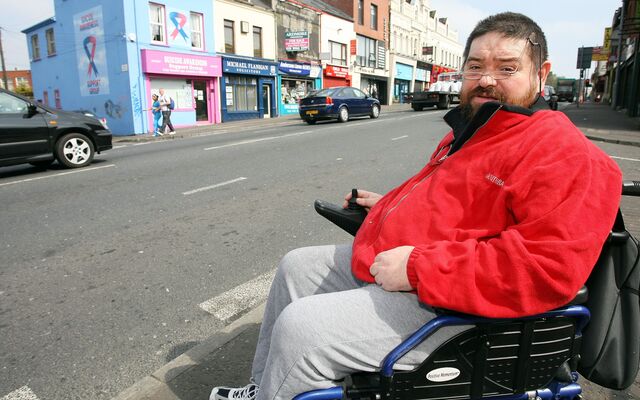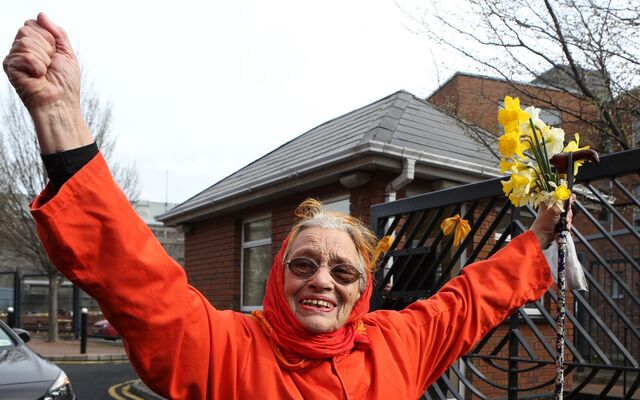Looking back on the seventies, the greatest divide, I suspect, between the Irish of the North of Ireland and the Irish of America was in their attitude to the 'underdog'.
I never met another soul at St Mary's CBS or at St Clare's youth club who didn't adore Muhammad Ali nor encounter any fellow-teenager whose sympathies weren't with the Vietnamese rather than the GI Joes in that far-away war echoing nightly from the corner of our living rooms.
Of course some of that worldview was influenced by the war on our own streets where the British Army had found kicking in doors a sure way to make an enemy of the youth of the West Belfast badlands.
Therefore, when the American Indian Movement occupied the trading post at Wounded Knee in February 1973, site of the infamous massacre a century earlier, to protest the denial of rights to native Americans, we were firmly in the corner of the outgunned warriors.
BREATHER: Taking a break from frontline duty, a warrior at Wounded Knee. Pic by Kevin McKiernan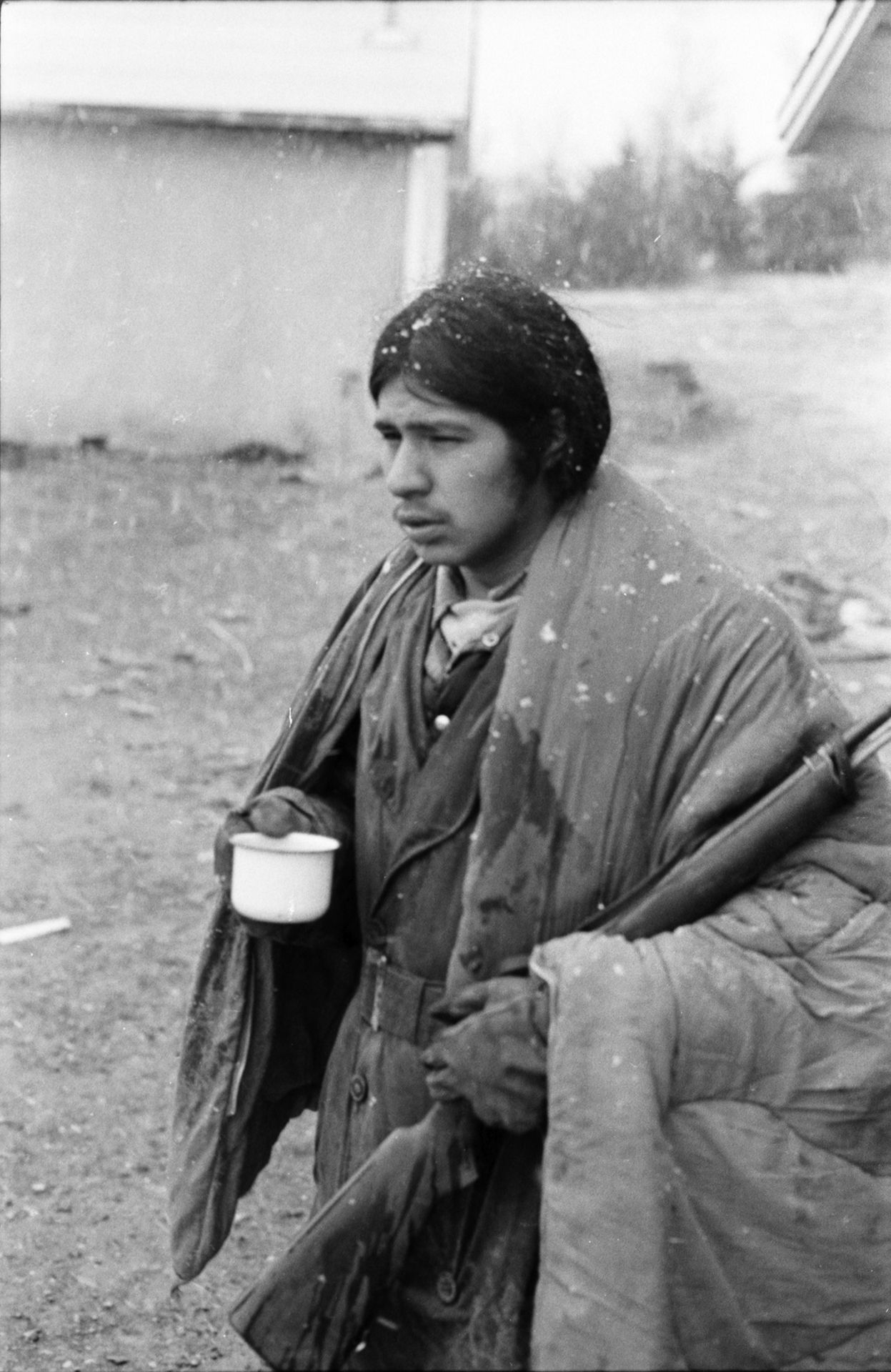
As our own city burnt, we followed the 71-day stand-off between a few hundred warriors and hundreds of US Marshalls and FBI agents as if it was a mirror image of our own siege - after all, we had British military outposts in our schools (St Genevieve's, Oliver Plunkett), our sports grounds (Casement), our playing fields (Silver City at Slieve Gallion) and atop our highest buildings (RVH).
When the siege ended in a 'surrender' and handing over of arms, the plight of the American Indian people slipped from our TV screens but not entirely from our hearts.
At the Irish College in Donegal in 1974, I brought Dee Brown's tome 'Bury My Heart at Wounded Knee' with me for reading material. (Complete with a single pound note Brother Beausang had donated to my kitty tucked into the dust jacket.)
50 years- Wounded Knee II. pic.twitter.com/mWzF5Qjwbd
— Eagle And The Condor Coalition (@eagle_condor_) February 20, 2023
In the intervening years, we kept the faith, fitfully, with the Native American struggle for rights and dignity, inviting an AIM delegation to Belfast in January 1985. Billeting with us in our bunker in Beechmount was Floyd 'Red Crow' Westerman who went on to star in Dances With Wolves and wrote 'Quiet Desperation' of Christy Moore fame.
At that time, he denounced alcohol as “chemical warfare" against the American Indians. So moved, I swore off drink for the following five months! The next time I met Red Crow in Belfast, he was sipping from a beer car. So was I! We were both sheepish in our greetings.
From a distance, I have watched the fortunes of the Native American peoples ebb and flow and winced at the dark side of AIM - most notably the 1976 fratricidal murder of Annie Mae Aquash - brought into the light.
David Hill, American Indian Movement, talking about Wounded Knee II. Mr. Hill will be a special guest Thursday at the @TateWikuwa book club advocating for #FreeLeonardPeltier! Join us! Email TateWikuwaBookClub@Gmail.Com for an invite. pic.twitter.com/fS4MYsrYNw
— LittleShell (She/Her/Kwe) (@LittleShellKwe) May 17, 2022
But while my engagement has been minimal, I thought it would be wrong to allow that great tidal wave of optimism for change in the lot of the American Indian, which reached its crescendo at Wounded Knee, go unmarked in Belfast in 1973.
BUGLE CALL: A warrior declares the ceasefire at Wounded Knee. Pic by Kevin McKiernan.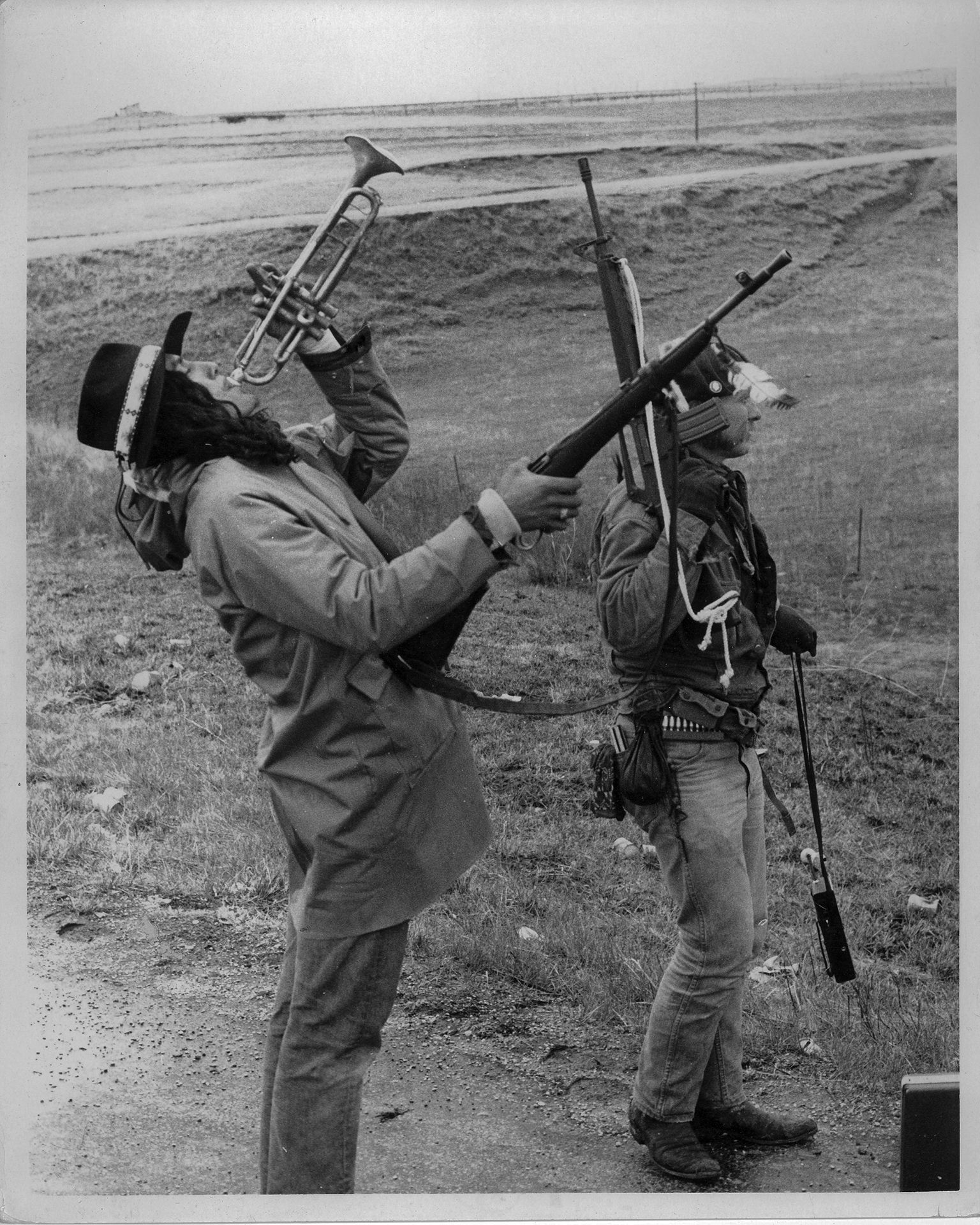
For that reason, I am delighted that veteran Irish American film-maker and photo-journalist Kevin McKiernan (no stranger to Belfast) has taken up our invite to travel to Belfast during Féile an Phobail in August to screen his new movie, 'Wounded Knee to Standing Rock: A Reporter’s Journey'. It's a greater privilege still to also roll out the red carpet for his buddy Willard Carlson, a Native American who answered the call to rally at Wounded Knee — and brought with him eight rifles provided by his mother. Willard's story of service and loss captures well the dilemma of the Native American in the 21st Century and we are are honoured to have him answer our call.
You can join us at The Movie House in City Side on Thursday 10 August for this historic occasion. Proceeds will go to Tuairiscigh Béal Feirste - Report for Belfast, the community interest company supporting public service journalism and we offer two tickets, one for £10 and a Patron's Ticket for £50. The cinema holds 100 seats - I look forward to a full house and some evocative, memory-jarring accounts from the heart of the Wounded Knee Occupation.
#WoundedKnee73 Day 59
— Indigenous (@AmericanIndian8) April 26, 2019
Lawrence "Buddy" Lamont,Oglala, was killed by a shot from a government sniper on April 26#INDIGENOUS #TAIRP pic.twitter.com/W8RGYpxoOG

